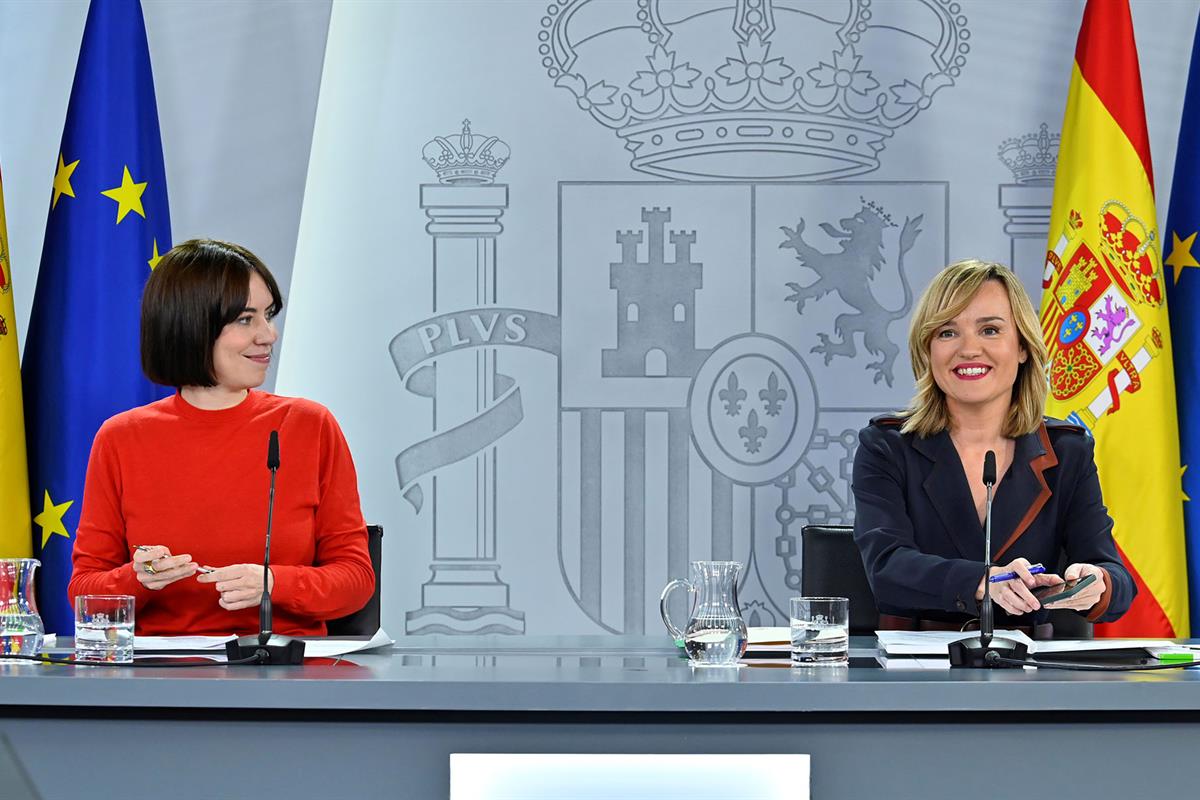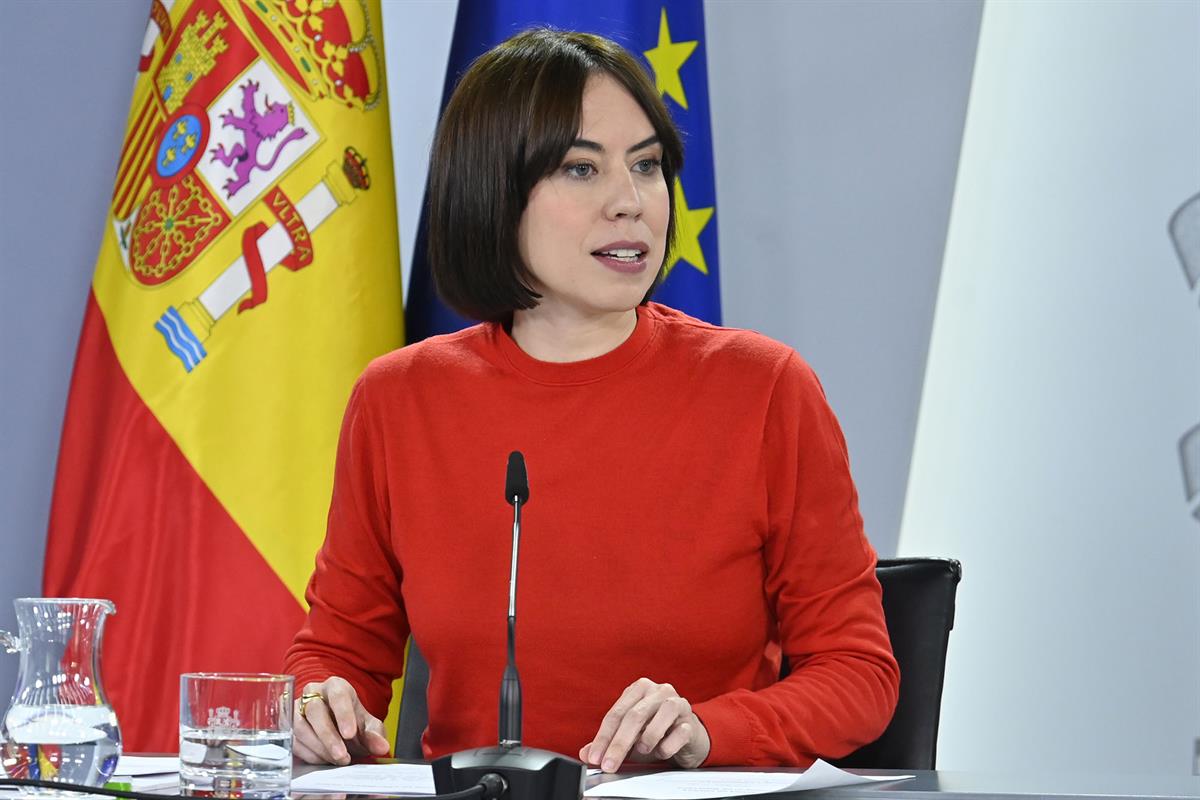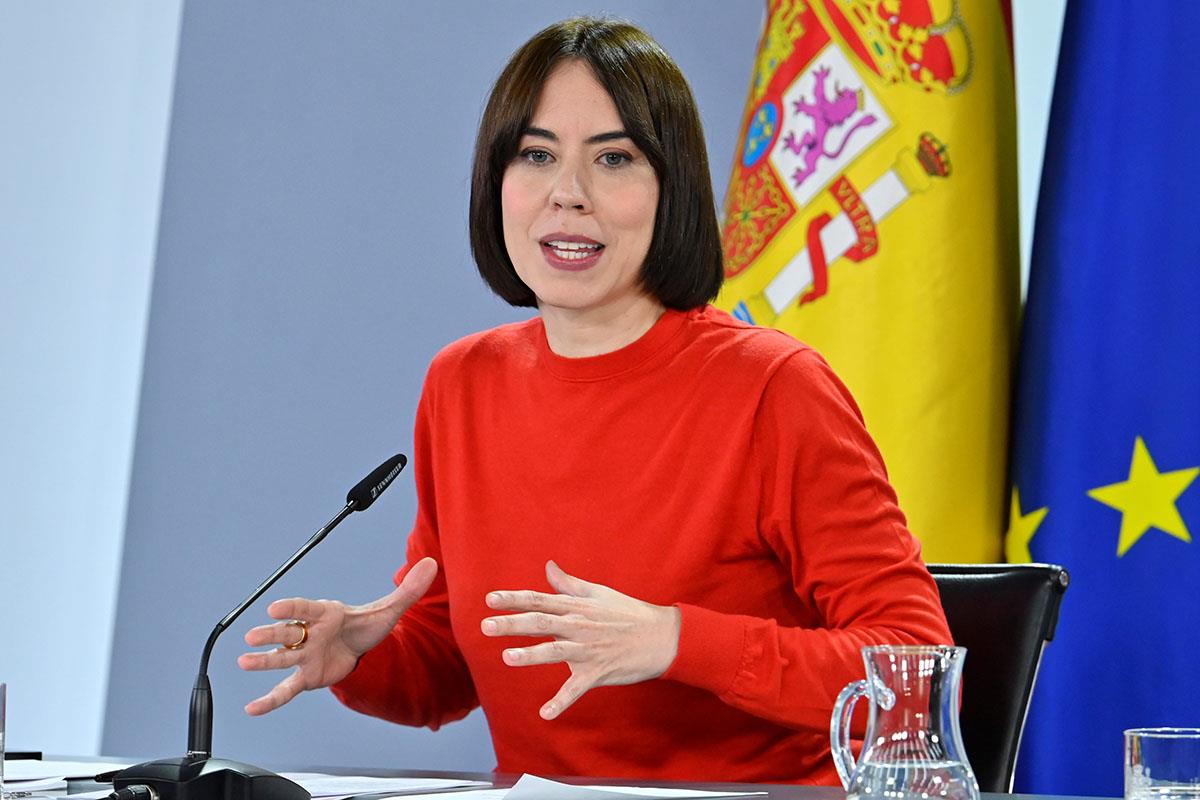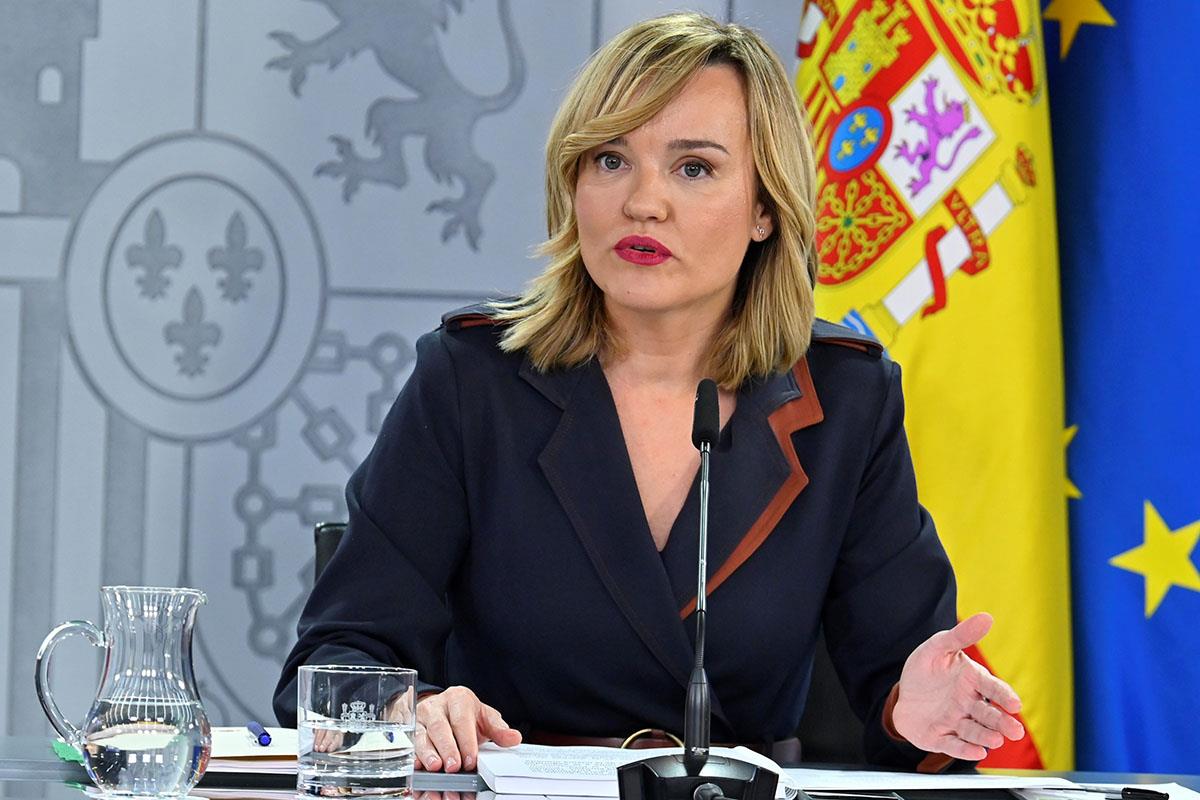Council of Ministers
The Government of Spain promotes the participation of universities and research centres in international projects
Council of Ministers - 2025.2.18
Moncloa Palace, Madrid
 Diana Morant and Pilar Alegría during the press conference after the Council of Ministers (Pool Moncloa/José Manuel Álvarez)
Diana Morant and Pilar Alegría during the press conference after the Council of Ministers (Pool Moncloa/José Manuel Álvarez)
The Council of Ministers has agreed to fund 98 projects from 57 universities and research centres that will work in collaboration with European institutions. The investment, part of the State Plan for Scientific and Technical Research and Innovation 2024-2027, totals €23 million.
Scientific strength in strategic areas
The Minister for Science, Innovation and Universities, Diana Morant, explained that these are projects that have previously been selected in competitive calls for proposals, in most cases with other European countries. "They guarantee our strength in strategic and collaborative areas such as chips, precision medicine, advanced materials and neuroscience," she said.
Morant said that, thanks to the agreement approved today, Spain will be part of the joint European effort for the design, innovation and manufacture of semiconductors, "a disruptive and very important technology". In this specific project, lines of work of the Consejo Superior de Investigaciones Científicas, the Barcelona Supercomputing Center and the universities of Seville, Granada, Autónoma de Barcelona and Politécnica de Madrid will be subsidised.
Another prominent example among the beneficiaries is the PRIMA programme, a joint initiative of 20 countries for research and innovation in the Mediterranean area. The minister pointed out that Spain has always led this programme, which began in 2018, and that the new funds will finance 11 universities and 8 research centres to study issues such as the availability and quality of water and sustainability in food production.
 The Minister for Science, Innovation and Universities, Diana Morant, at the press conference after the Council of Ministers (Pool Moncloa / Jose Manuel Álvarez)
The Minister for Science, Innovation and Universities, Diana Morant, at the press conference after the Council of Ministers (Pool Moncloa / Jose Manuel Álvarez)
The government's efforts to promote the participation of Spanish centres and groups in international research "is bearing fruit", according to Diana Morant. The Minister for Science pointed out that Spanish entities have obtained €4.068 billion in European funds for R&D projects since the start of Horizon Europe, the European Union's framework programme for research and innovation, in 2021.
In the last year, she added, Spain has been the country with the third highest return of funds in Horizon Europe, after Germany and France, and is in first place in terms of leadership of projects coordinated with other entities and other countries with 645 initiatives, 16% of all projects funded.
Spain's commitment to science
During her speech, Diana Morant reiterated the government's commitment to science as an engine of growth and welfare and as a democratic compass for public and political decision-making: "This commitment to science, innovation, our talent and our public science institutions, both universities and public research organisations, is contributing to greater employment and economic growth.
Morant also stressed that the commitment to science allows Spain to position itself, within the European project, as a country "with greater strength and greater cohesion in a global context as complex as the one we are currently in".
In her view, deep and structured collaboration on R&D, science and innovation in Europe is needed to boost competitiveness and close the gap with countries such as the United States and China. "This is the recipe since Pedro Sánchez has been President of the Government of Spain: to promote greater cohesion within the European Union in order to face global challenges and protect European interests, which is the same as defending the interests of our democracy and our neighbours," she remarked.
R&D investment double that of the European Union
 The Minister for Science, Innovation and Universities, Diana Morant, during her speech at the press conference after the Council of Ministers (Pool Moncloa/José Manuel Álvarez)
The Minister for Science, Innovation and Universities, Diana Morant, during her speech at the press conference after the Council of Ministers (Pool Moncloa/José Manuel Álvarez)
The minister recalled that Spain is the fastest growing country among the world's advanced economies: "It represents approximately 10% of the European Union's GDP and contributed 50% of the Union's economic growth in 2024".
This economic and employability growth in our country coincides, according to Morant, with the greatest investment in science and innovation in history: "We are seeing record R&D investment figures: more than €22.3 billion invested in 2023". This represents 1.49% of GDP and the largest year-on-year increase Spain has ever recorded. The increase in the last year was 16%, she added: "We are investing more than ever before and this growth in public and private R&D investment is more than twice the growth of R&D investment in the European Union.
In this context, Diana Morant referred to the Cajal International Neuroscience Centre opened yesterday, in which €70 million have been invested to make advances in the diagnosis and treatment of important health issues such as depression, Alzheimer's and Parkinson's disease.
"We will continue to support our scientists, our institutions, where science is done, as never before, because we understand that it is also our obligation to promote the public service of science to guarantee the welfare of citizens," concluded the minister.
Interministerial Commission for the 2030 Football World Cup
 The Minister for Education, Vocational Training and Sports and Government Spokesperson, Pilar Alegría, during her speech at the press conference after the Council of Ministers (Pool Moncloa/José Manuel Álvarez)
The Minister for Education, Vocational Training and Sports and Government Spokesperson, Pilar Alegría, during her speech at the press conference after the Council of Ministers (Pool Moncloa/José Manuel Álvarez)
The Minister for Education, Vocational Training and Sports and Government Spokesperson, Pilar Alegría, announced that the Council of Ministers has approved the creation of an Interministerial Committee for the preparation of the 2030 FIFA World Cup, a sporting event to be jointly organised by Spain, Portugal and Morocco, as announced by FIFA in December 2024.
Alegría explained that, as Minister for Sports, she will chair this Commission, whose vice-presidency will correspond to the president of the Higher Council for Sports, José Manuel Rodríguez Uribes. This body will have the participation of 15 ministries and non-voting representatives of the Spanish Football Federation, the Spanish Olympic Committee and the Paralympic Committee, as well as personalities of recognised prestige.
"We are talking about a national project and, for this reason, the Government of Spain is committed to providing and offering the best infrastructures, the best service and the necessary institutional support," said Alegría. "We have a magnificent opportunity with this celebration to show that Spain has great potential to host major events, as we have already demonstrated on other occasions, and to show once again how proud we are of our country," she added.
Investment in infrastructures: high speed rail and Valladolid station
The Government spokesperson also announced the approval in the Council of Ministers of a €363 million tender for the works to construct the first section of the Burgos-Vitoria high-speed line, an investment included in the deployment of the high-speed connection between the Basque Country and the Atlantic Corridor.
Pilar Alegría underlined that this work constitutes a "technical and engineering challenge", as 77% of it runs through a succession of tunnels and viaducts. According to the minister, these works will allow the development of a "fundamental" infrastructure which, she said, will have all the sections of the line put out to tender by 2026.
 Diana Morant and Pilar Alegría answer questions from the press after the Council of Ministers (Pool Moncloa/José Manuel Álvarez)
Diana Morant and Pilar Alegría answer questions from the press after the Council of Ministers (Pool Moncloa/José Manuel Álvarez)
On the other hand, the Council of Ministers has authorised an allocation of €253 million to tender the works for the extension and transformation of the Valladolid-Campo Grande station, a reform that Alegría has described as "key for the city of Valladolid". The minister pointed out that with this project, which includes the construction of a new passenger building above the platforms, the station will double its capacity and will be able to accommodate up to 5 million users a year.
Other topical issues: Ukraine summit
The spokesperson of the Government of Spain referred during her speech to the informal meeting of European Union leaders held in Paris with the aim of discussing and exchanging ideas on the situation in Ukraine and security in Europe.
Alegría recalled Spain's commitment to help Ukraine and reiterated the message sent from Paris by the President of the Government of Spain, Pedro Sánchez: "Peace in Ukraine and European security are two sides of the same coin. Ukraine's struggle is the defence, not only of a model of coexistence, but of a model of peace, prosperity, respect for human rights and democracy. And that model is the one we will continue to preserve", he assured.
The President of the Government concluded by recalling "Ukraine still needs the support of the international community, and particularly Europe, to achieve the ultimate goal of a just and lasting peace.
Non official translation






